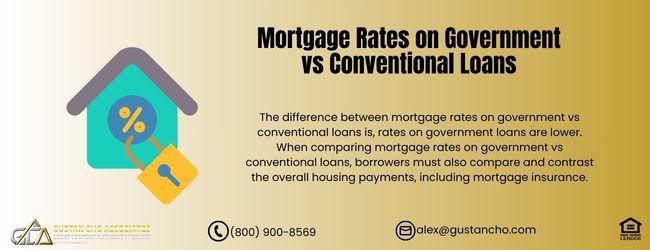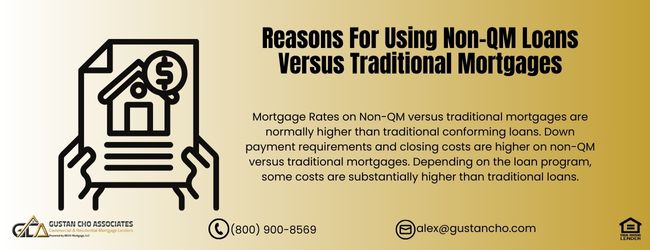What Are Hard Money Loans

This guide covers what are hard money loans. It also covers how difficult money loans are. Hard money loans are quick, high-interest loans for investment properties. Hard money loans are short-term loans secured by real estate or other tangible collateral. Hard money lenders are more concerned with the collateral than the borrower’s credit scores, credit, and income profile. Hard money lenders, who are real estate lenders, normally will lend between 50% and 75% of the loan to the value of the subject property. Real estate tough money lenders normally charge upfront points and offer borrowers short-term interest-only loans. Mortgage interest rates on hard money loans can range from 5% to 15%.
What Are Hard Money Versus Conforming Loans
These are the fundamentals of hard money financing. Most borrowers who do not qualify for regular conventional loans will seek the services of unconventional moneylenders. Hard money loans are not for everyone. The hard money lender assumes they will take your collateral and that your default rate will be high. Dale Elenteny, a senior mortgage loan officer at GCA Forums Mortgage Group, says the following about what are hard money loans:
Most hard money lenders have no mercy and only care about getting a refund along with the interest. The most difficult money lenders will lend short-term, such as a one-year to a three-year term. Loans are usually interest-only, with the balance due at the end.
Real estate investors use hard money loans to provide quick cash when regular loans are unavailable. A hard money loan is a short-term loan using real property as collateral. Unlike traditional loans, hard money loans do not focus on the borrower’s credit score. Instead, they focus on the collateral real estate’s value, ensuring swift approval and funding in mere days.
Looking for Flexible Financing? Consider a Hard Money Loan!
Reach out now to discuss how we can help you secure a hard money loan.
What Are Hard Money Loans and What Are Their Key Features
Key features include:
- High interest rates: 8-15% or even higher for lenders due to the risk involved.
- Short terms: 6 months to 3 years is common, usually resulting in a balloon payment.
- Loan-to-value ratio: LTV ratio allows 50-70% of lesser value or ARV, which results in post-repair value.
- Borrowers must pay the proportionate value after the down payment.
- Private lenders: Individuals and privately owned companies issue loans by cutting out banks.
- This allows them greater flexibility regarding terms.
- However, it also makes them costlier.
- Use cases: This loan is ideal for fix-and-flip assignments and distressed homes, as well as borrowers who cannot qualify for bank loans due to a low credit score.
- This creates risk for borrowers due to high expenses and short repayment timelines.
- Still, it also provides flexibility and speed for real estate transactions.
What ARe Hard Money Loans Versus Non-QM Mortgages
Private or alternative lending includes tough money financing, subprime and non-QM loans, and alternative lending for real estate investors. All three of these loan programs are portfolio loans that most banks and traditional commercial mortgage banks would rather not take on. Most hard money lenders would rather not lend on residential owner-occupant homes.
Owner-Occupant Versus Investment Property Loans
Here are the differences between residential owner-occupant properties and investment property loans. If borrowers default, foreclosing on residential owner-occupant homes is much more difficult than investment properties.
RESPA and mortgage regulations apply to owner-occupant homes.
Non-traditional or non-QM loans are a wonderful alternative financing option for owner-occupant homebuyers who cannot qualify for traditional conforming home loans. There is no waiting period following bankruptcy, deed-in-lieu, foreclosure, or short sale. The program offers bank statement loans. Real estate investors can apply for loans without doc fix-and-flip requirements.
Hard Money Loans For Investment Properties
What are hard money loans, and what are their great benefits? Hard money loans are a great tool for savvy real estate investors. Benefits: Real estate investors need temporary funding that a bank or mortgage banker cannot give due to the borrower’s property condition or credit profile. Hard money loans are not just for borrowers with credit issues. Many real estate investors prefer hard money financing because it is streamlined with much less paperwork and quick 2- to 3-week closings.
Typical Investor Who Benefits From Hard Money Loans
Below is a typical difficult money case scenario. For example, let us take a case scenario where hard money loans will be a great tool for a hard money loan borrower. Say Jack Smith sees a foreclosure coming up at a sheriff’s sale and thinks he can purchase it for $50,000. The property will need $10,000 worth of work, and he feels he can sell it for $100,000 after remodeling. Jack Smith can’t get a conventional mortgage because he’s self-employed and doesn’t report all his income. However, Jack Smith has over $35,000 in cash—actual mattress money not deposited in the bank.
Case Scenario on What Are Hard Money Loans
Jack Smith contacts a tough money lender. The lender will charge him an 8% origination fee and a 15% interest-only loan for one year for any sheriff’s sale property purchase. This offer is valid as long as he can save 40% of his money.
Jack Smith puts down $20,000; the hard money lender gives him $30,000. Jack Smith buys the house. He pays the hard money lender an additional $5,000 in fees. Jack Smith starts renovations and sells the home in six months for $100,000. In this simplified case scenario, Jack Smith made some great money by getting his financing from a hard money lender.
No other lender would have given him the money except the tough moneylender. Although his costs and fees were extremely high, he came out ahead. On the flip side, if Jack Smith could not have sold the property for a profit and ran out of money, the tough money lender would have foreclosed on the home.
What Are Hard Money Loans For Bridge Financing
Bridge loans used to be very popular before the 2008 real estate and credit meltdowns, and most banks offered them for commercial real estate investors and borrowers. Unfortunately, most banks eliminated bridge financing programs. Hard money lenders can be an excellent option for real estate investors needing temporary financing and a bridge loan. Hard money loans are costly but can help those without other funding sources. Borrowers who need additional information on hard money and non-QM loans, please contact us at Gustan Cho Associates Mortgage Group at 800-900-8569 or text us for a faster response. Or email us at gcho@gustancho.com.
This blog on what hard money loans are was updated on July 28th, 2023.
Need a Hard Money Loan for Your Property Investment? We Can Help!
Contact us today to find out how you can qualify for a hard money loan.







Responses